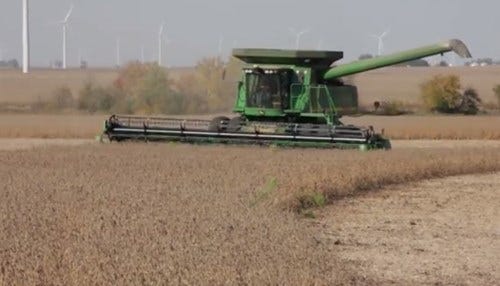Ag Sector Targets Logistics
 Monday's launch will include presentations
Monday's launch will include presentations
Subscriber Benefit
As a subscriber you can listen to articles at work, in the car, or while you work out. Subscribe NowA new program is raising awareness and offering technical assistance for an infrastructure issue that has a significant impact on the state’s agriculture sector. Several Indiana ag organizations are partnering with Purdue University’s Indiana Local Technical Assistance Program to provide discounted rural bridge load testing services to county highway departments. The organizations say delivery issues caused by bridge closures or restrictions cost Hoosier farmers and consumers money.
The Indiana Soybean Alliance, Indiana Corn Marketing Council and Soy Transportation Coalition are partnering on the effort.
Indiana Soybean Alliance and Indiana Corn Marketing Council Director of Grain Marketing Ed Ebert says agribusiness professionals from farmers, to truck drivers, to grain elevator operators to food production facilities are affected by movement around rural bridges that can’t bear the necessary loads.
Current, often less-accurate measures for load ratings can cause municipalities to close or restrict bridges unnecessarily.
LTAP Research Manager Pat Conner, who is with the Purdue Lyles School of Civil Engineering, estimates it could cost around $2.3 billion to replace county bridges throughout the state that are considered structurally deficient and functionally obsolete. He says cutting bridges restricted in these ways from the current 22 percent level to eight percent would set the state back approximately $1.8 billion. Conner says funding for bridge repairs or testing statewide has been "pretty flat" in the recent decade or more, yet maintenance and replacement costs continue to rise.
The issue has been in the spotlight due to high-profile structural problems such as a major bridge repair near Lafayette on I-65 this summer that snarled traffic along the busy roadway. The groups say the recently-released "2015 Statewide Bridge Sufficiency Rating Report” shows 1,398 of the 13,090 bridges in Indiana that are maintained by counties are rated "structurally deficient" and 1,570 bridges closed or have weight restrictions. The organizations also warn that number could rise because of new load posting criteria.
County officials interested in the program can contact Conner at 765-494-4971.
